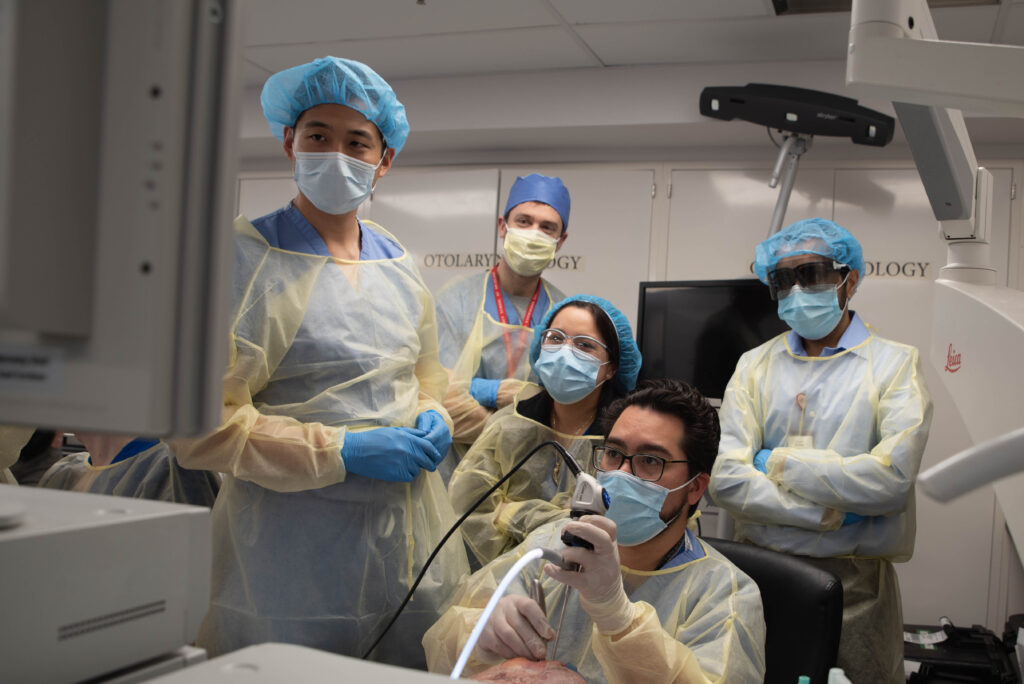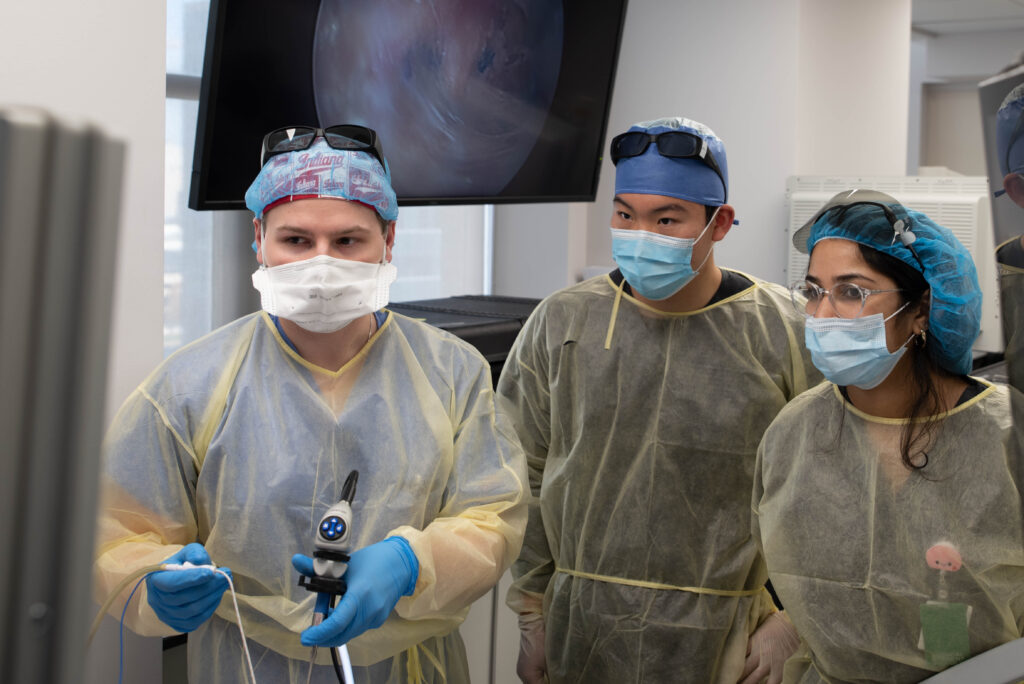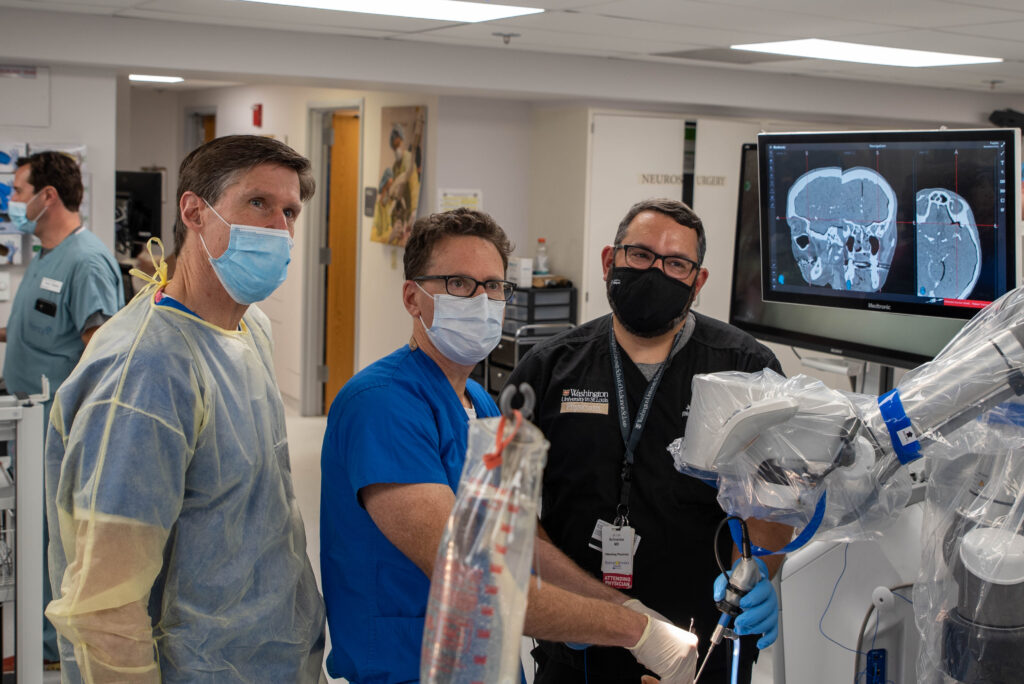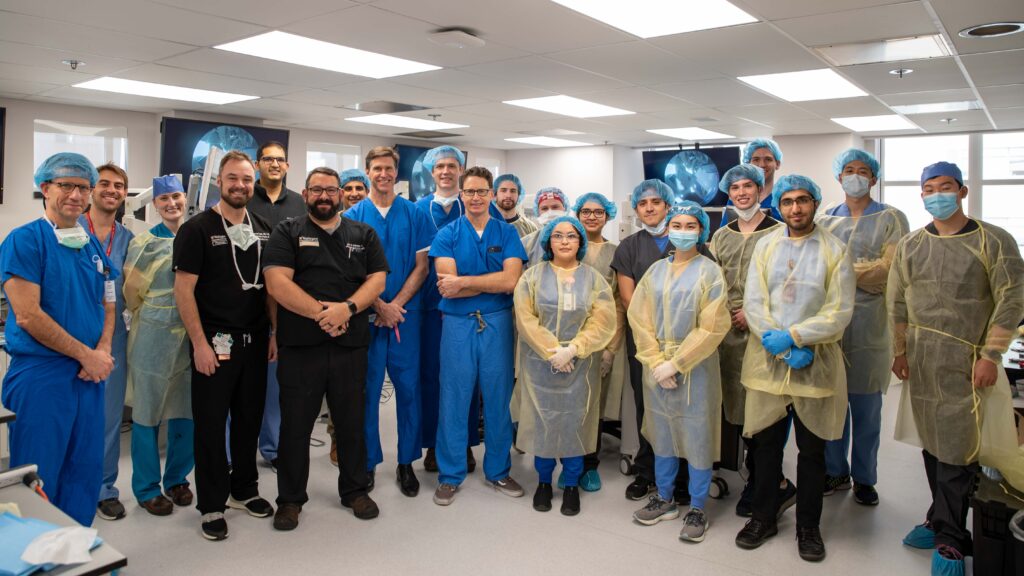Surgeons who have pioneered some of today’s most advanced skull base surgical techniques trained Washington University School of Medicine neurosurgery and otolaryngology residents.
During the two-day training session, Washington University neurosurgery, otolaryngology and opthalmalogy faculty were joined by two prominent leaders in their fields:

- Kris S. Moe, MD, chief of University of Washington Facial Plastics and Reconstructive Surgery, who pioneered transorbital neuroendoscopic surgery (TONES), and
- Theodore H. Schwartz, MD, professor of Neurological Surgery at Weill Cornell Medicine, who developed and expanded the field of minimally invasive endonasal endoscopic skull base and pituitary surgery.
Held in Washington University’s multi-disciplinary surgical simulation lab, residents practiced standard neurosurgical approaches on Friday and were introduced to a new form of scar-less neurosurgery on Saturday – transorbital neuroendoscopic surgery, or TONES.

“The highlight for our residents was learning transorbital neuroendoscopic surgery,” says John Schneider, MD, rhinology division chief. “This minimally invasive approach allows surgeons to access areas of the skull base and sinus cavities without needing a large scalp incision. This helps patients recover faster and with less discomfort.”
One of the best training experiences for residents is learning from surgical leaders and mentors how to navigate challenging state-of-the-art procedures with the latest surgical tools, according to Washington University neurosurgeon Michael Chicoine, MD, who led the Dec. 3-4 dissection course.
“The lab would not have been successful without the dedication of our brilliant faculty members and visiting faculty who demonstrated difficult surgical approaches,” says Chicoine.

Washington University experts who trained the residents included: neurosurgery faculty Albert Kim, MD, PhD, Sean McEvoy, MD, Josh Osbun, MD, Ananth Vellimana, MD, and Chicoine; otolaryngology faculty Kristine Klatt-Cromwell, MD, Nyssa Farrell, MD, and John Schneider, MD; and ophthalmology faculty Steven Couch, MD.
“Many thanks to Education Coordinator Kayla Zoschg and lab director Brian Faddis for organizing this successful training event,” says Chicoine. “The event would not have been possible without the additional support of our sponsoring vendors, including: Stryker Med Ed, Medtronic Giving Connection, the Barnes-Jewish Hospital Foundation, Aesculap, Inc., and Acclarent, Inc.”
